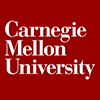Project Scientist 2025
 Carnegie Mellon University Carnegie Mellon University | |
 United States, Pennsylvania, Pittsburgh | |
 5000 Forbes Avenue (Show on map) | |
 Oct 07, 2025 Oct 07, 2025 | |
|
Carnegie Mellon University: Mellon College of Science: Physics Location Pittsburgh, PA
Open Date Sep 30, 2025 Description The LINCC Frameworks Team at Carnegie Mellon University has an outstanding opportunity for a full-time Project Scientist who will lead the development, testing and deployment of scalable analysis pipelines to enable science on data from the next generation of sky surveys, including and beyond Rubin's Legacy Survey of Space and Time (LSST). Science is at an inflection point where the volume of data can fundamentally change our understanding of the universe. The scientific reach of surveys such as LSST will be extraordinary, addressing questions such as: how did the Solar System form; what governs the birth and death of stars; how does dark matter sculpt the shape of our Galaxy; what is the nature of the dark energy that drives the expansion of our Universe? Critical to answering these questions will be the software infrastructure we use to analyze these new volumes of data. New approaches will be required to not only scale to each survey, but provide the ability to combine data across surveys. The LINCC Frameworks team's goal is to build analysis frameworks that can store, search, analyze and annotate data of the volume and complexity of this next generation data. As a Project Scientist you will work with a team of software engineers to lead the development of one of one of the team's focus areas such as scalable spatial analysis, time domain, minor planets, or photo-z. We seek computationally talented scientists with a background in astronomy who are ready to work with early adopters of these software platforms. As Project Scientist you will lead the development and application of astronomical analyses using the software, work with external researchers to design and implement their analyses, and train and mentor junior staff. You will be integrally involved in producing, critiquing, improving, and disseminating results. Throughout this process, software engineers and research scientists involved in the project will develop example notebooks, facilitate testing for specific science use cases, and provide user support to ensure the scientific utility of the products. This position is part of the LINCC Frameworks program, https://lsstdiscoveryalliance.org/programs/lincc-frameworks/, which includes multiple institutions: University of Washington, Carnegie Mellon University, and the University of Pittsburgh. Qualifications We seek computationally talented scientists with a background in astronomy who are ready to work with early adopters of these software platforms. Applicants should hold a Ph.D. in Physics, Computer Science (or related fields) by the time of appointment. Applicants should have programming experience with at least one modern language such as Python, Java, C++ including object-oriented design. Application Instructions Applications, including a curriculum vitae, publication list, and statement of research interests should be submitted through this Interfolio site. Candidates should also arrange to have at least three letters of recommendation uploaded to Interfolio. Review of applications will begin on 12/01/2025 and continue until the position is filled. Please contact Prof. Rachel Mandelbaum at rmandelb@andrew.cmu.edu with any questions. | |


